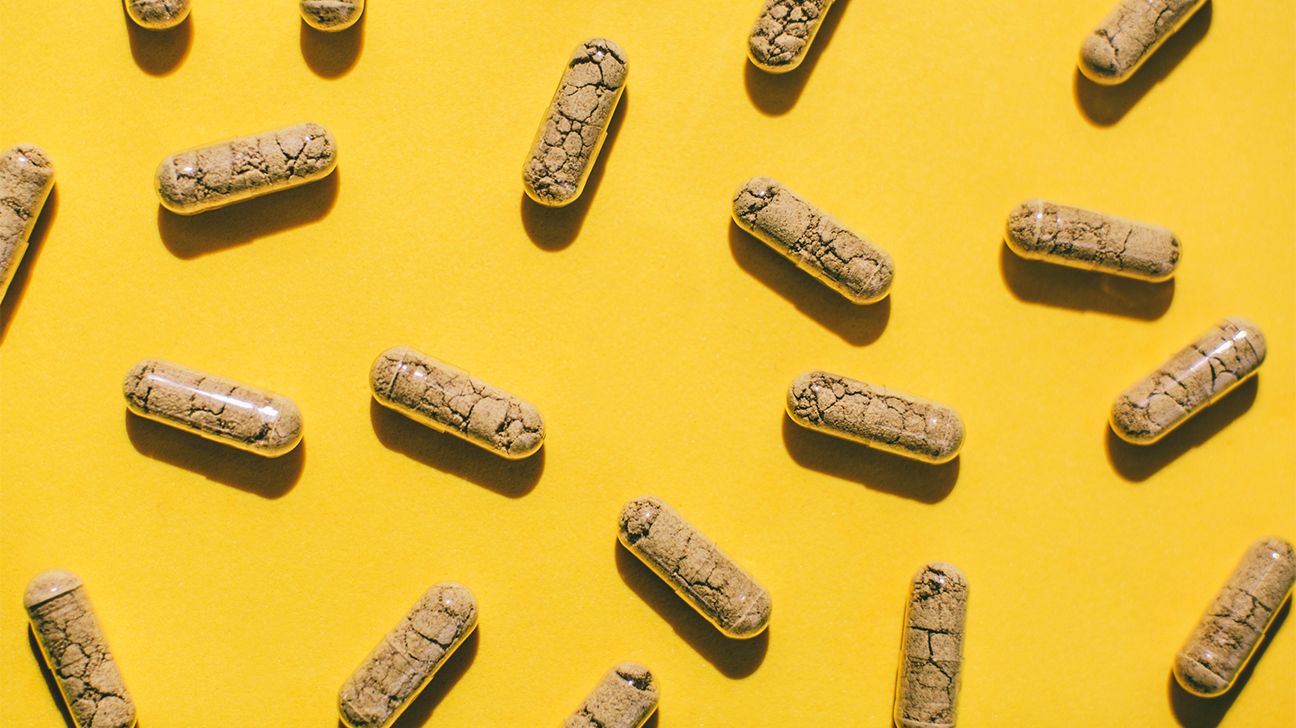Whether you’ve heard about their alleged benefits from a friend or seen the colorful ads on social media, the buzz around probiotics is pretty hard to miss. And if you’ve stood in the aisle of a grocery store and wondered “Is this $35 bottle of supplements really worth it?”, we’re with you.
We’ll level with you: The science behind the effectiveness of probiotics is all over the place. While there has been plenty of promising research, we’re still far from being able to claim that probiotics are definitely effective for any of their popular uses.
It’s also important to know that probiotics are supplements, so they aren’t regulated by the government as closely as drugs are. This means many brands have no third-party testing and minimal oversight, and they may make all sorts of unproven health claims.
To help you make sense of this confusing subject, we talked to some experts and looked into the research. Read on to find out if probiotics are worth the hype.
Probiotics are live microorganisms found in fermented foods and supplements. They’re similar to the good bacteria that naturally occur in your body.
The logic behind taking probiotics is that consuming more good bacteria helps keep your microbiome balanced, which supports many processes in your body, including digestion and healthy immune function.
Microbiome refresher
The microbiome is the trillions of microbes — bacteria, fungi, and viruses — that live in your body. Most of these microbes are found on your skin and in your digestive system (aka your gut).
A healthy microbiome is made up of a balance of good and bad bacteria, and when that balance is thrown out of whack, a handful of things can go wrong.
“We all have a trillion or so microbes within our gut. Anything that disrupts the motility and the rhythmic cleansing of our GI tract will cause a bacterial overgrowth,” says Lisa Ganjhu, a gastroenterologist and clinical associate professor of medicine at NYU Langone Health.
Taking antibiotics is a common cause of bacterial overgrowth.
“Antibiotics kill not only the ‘bad guys’ causing the infection, but they kill also the ‘good guys,’” says Dr. Mary Jane Minkin, a clinical professor in the department of obstetrics, gynecology, and reproductive sciences at the Yale University School of Medicine.
This can lead to antibiotic-associated diarrhea and yeast and urinary tract infections in people with vaginas, according to Minkin.
If you’re concerned antibiotics are causing symptoms like diarrhea or vaginal infections, it’s possible a probiotic regimen can help. However, it’s important to talk with a doctor before starting, since your symptoms may be attributed to a different medical issue.
Researchers are studying probiotics’ effects on a wide range of health issues. While the research is still young, probiotics may be beneficial for the following health goals:
- Inflammation. A 2014 review of studies found ample evidence that probiotics have anti-inflammatory effects.
- Stress reduction. According to a 2015 study, taking probiotics can help alleviate stress and anxiety.
- Heart health. A 2014 review of studies found that probiotics might be beneficial for the cardiovascular system.
- Skin health. There’s promising research to suggest that probiotics can treat atopic dermatitis and might even have wound-healing and anti-acne effects.
Once again, if you’re interested in using probiotics to help in one of these areas, chat with your doctor.
You can also boost your gut health by eating foods that contain good bacteria. Probiotic foods are fermented, so they contain the same beneficial living microorganisms that come in supplements.
Prebiotics are fiber-rich foods that feed the bacteria in your gut, which improves the overall health of your microbiome.
Prebiotics: Fiber-rich noms
- whole grains
- garlic
- onion
- leeks
- asparagus
- bananas
- barley
- oats
- apples
If you’re experiencing symptoms you think might be related to an imbalance in your microbiome, your first step should be contacting your healthcare provider. They can help determine if probiotics are the best option for you or if there’s something else going on with your health.
“Prescribing probiotics is a little bit of an art form,” Ganjhu says.
If there’s a short-term issue, maybe the result of antibiotics or a bout of food poisoning, you might not necessarily need to take probiotics in the long term.
If you’re under a lot of stress or drink a lot of alcohol, you may need to take probiotics longer, because these behaviors don’t allow a healthy microbiome to grow, Ganjhu says.
It might take a bit of trial and error to see what works for you. When in doubt, listen to your healthcare provider’s recommendations.
If you don’t have any digestive issues or pain and you typically have regular bowel movements, your microbiome is probably doing just fine. There’s no real reason for you to be taking a probiotic.
Plus, trying one “for fun” may lead to new issues. Taking probiotics when you don’t need them can even throw off your gut’s natural rhythm, affecting your gut motility and causing a range of problems.
There are also all sorts of probiotics made up of different strains intended to treat a variety of conditions, such as diarrhea, IBS, eczema, vaginal infections, and urinary tract infections. A probiotic that knocks out one condition might exasperate another.
If you’ve started taking probiotics and have noticed a change for the worse in your digestion (think: bloating, nausea, reflux), stop taking them immediately.


